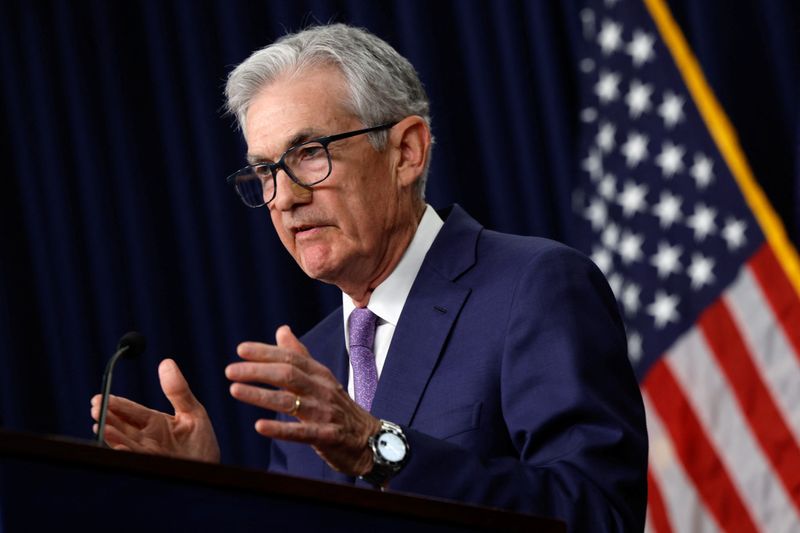- Labor market is "not a source of broad inflationary pressures for the economy now," says Powell. Reiterates they need to see more good inflation data.
- "If the labor market weakens unexpectedly, that could be a case for loosening policy as well," comments Powell
- Powell reiterates he will avoid sending rate timing signals, and it depends on the data.
- "The best thing we can do for younger people is to restore price stability," states Powell
- Powell: Commercial real estate risk will probably be with us for years. Will be an issue for many banks.
- Powell when asked when he will lower interest rates: "I'm today not going to be sending any signals about the timing of future actions."
- "Want to see more good inflation data," says Powell.
- The US economy has performed very well compared to advanced economy peers, says Powell.
- Powell says there are significant housing issues in the country. The pandemic has created new distortions. Tighter policy is having an effect on economic activity in the housing sector. Powell says the best thing we can do for housing is to get inflation to 2%.
- Powell says: "Labor market conditions have cooled considerably compared to where they were two years ago," and the labor market appears to be fully back in balance. He adds that this is no longer an overheated economy.
- Powell states that easing too soon, too much, could harm inflation progress. Easing too little, too late could unduly weaken the economy.
- Powell said that "in light of the progress made both in lowering inflation and in cooling the labor market over the past two years, elevated inflation is not the only risk we face.” He adds that “reducing policy restraint too late or too little could unduly weaken economic activity and employment.”
Fed Chair Powell's Testimony Could Provide Rate Cut Clues
Federal Reserve Chair Jerome Powell is set to deliver his semi-annual testimony on Tuesday, a highly anticipated event that could provide significant insights into the central bank's future monetary policy.
As markets await his remarks, investors and analysts are keen to decipher any signals about the direction of interest rates and the Fed's approach to managing inflation and economic growth.
Powell's testimony comes at a pivotal moment, with the Fed Chair likely to face questions on factors such as the interest rate path, inflation, and the economic growth outlook.
He is also expected to speak on the key takeaways of the Fed's Semi-Annual Federal Reserve Monetary Policy Report, published last Friday, highlighting modest further inflation progress this year.
Investors are particularly focused on Powell's stance regarding future rate cuts. Data recently showed a sharp rise in expectations for a September rate cut by the Fed, although some believe the first rate cut will arrive in December.
In a note to clients Tuesday, analysts at Macquarie said they believe Powell's tone will be dovish.
"Last week's FOMC Minutes already displayed a shift in the Fed's tone, toward caring more about the loosening labor market and softening activity indicator," they wrote. "If Congress issues strong calls to have President Joe Biden abandon his candidacy, and if that raises the prospect that Donald Trump will win, it could raise US yields again.
"For good reasons, traders like to link Trump's policy agenda with inflation; they see policy rates being higher than otherwise under Trump 2.0, as we've discussed."
As Powell takes the stand, markets will be closely monitoring his every word for clues about the Fed's future actions.
